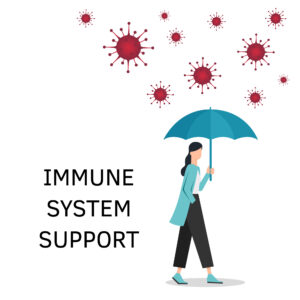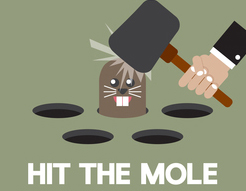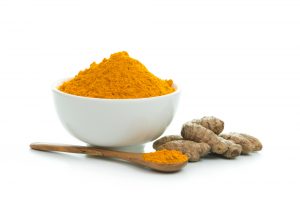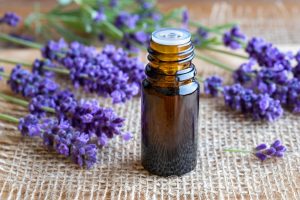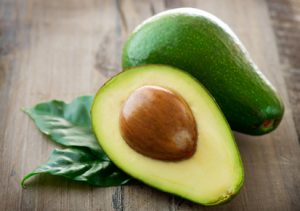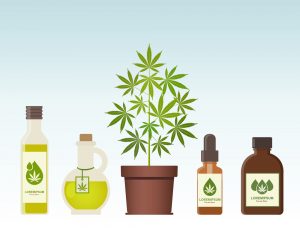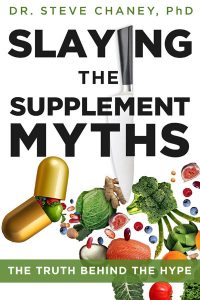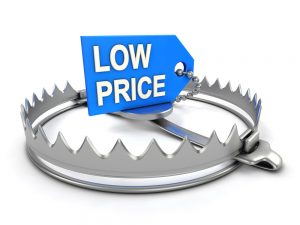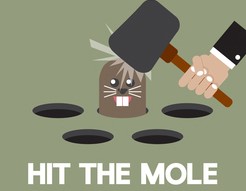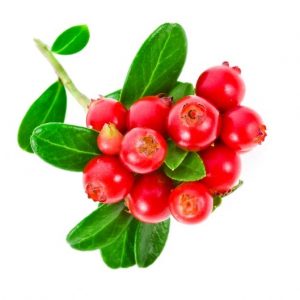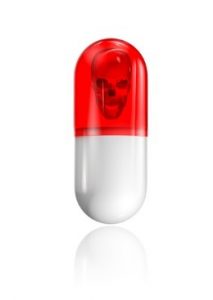It’s A Jungle Out There
Author: Dr. Stephen Chaney
 In 2020 the annual retail sales of herbal supplements in the United States exceeded $12 billion, and the sales of herbal supplements continues to grow at almost 10% per year.
In 2020 the annual retail sales of herbal supplements in the United States exceeded $12 billion, and the sales of herbal supplements continues to grow at almost 10% per year.
Each of those herbal supplements are marketed to help with a particular health issue. The promise is that they are “natural”. They don’t have the side effects associated with most medications.
But what if it were all a hoax? What if the supplement was adulterated – it contained an inactive powder rather than the active herbal ingredient claimed on the label?
Would you be outraged? You should be.
Unfortunately, it is a jungle out there! Popular botanical ingredients are expensive. It is a lot cheaper to substitute cheaper inactive ingredients for the botanical ingredients listed on the label. This is a shady practice called intentional adulteration.
And equally unfortunately, many manufacturers don’t perform the kind of quality controls that would allow them to identify adulterated herbal ingredients before they end up in their products.
So, you might be wondering:
- “Are the herbal supplements I am using adulterated? Am I wasting my money?”
- “How can I protect myself from this unethical practice?” “How can I become an informed consumer?”
The study (N Orhan et al, Natural Product Reports, DOI: 10.1039/d4np00014e, March 27, 2024) I am reviewing today answers the first question. It estimates the prevalence of adulteration in the top 5 most popular herbal supplements in the United States; black cohosh, echinacea, elderberry, ginkgo, and turmeric.
I answer the second question below.
What Is Adulteration And How Does It Occur?
 To understand how adulteration occurs it’s best to start from the beginning.
To understand how adulteration occurs it’s best to start from the beginning.
How Do Herbal Ingredients Get Into The Product You Buy?
- It starts with individual farmers who sell raw ingredients to a supplier.
- The supplier combines the raw ingredients from multiple farmers into bulk botanical ingredients which they sell to a manufacturer.
- The manufacturer combines ingredients from several suppliers and creates the herbal supplements you buy.
How Is Adulteration Defined? Adulteration can be accidental, but it is most often intentional. The authors of this paper defined intentional adulteration as “the fraudulent addition of non-authentic substances or the removal and replacement of authentic substances without the purchaser’s knowledge [usually] for the economic gain of the seller.”
How Does Adulteration Occur? Two things are required for the adulteration of herbal supplements – adulteration by the seller and either lack of quality controls or quality controls that are unable to detect the adulteration by the buyer. For example:
- A farmer sells adulterated raw ingredients to the supplier, and the supplier does not employ adequate quality controls to detect the adulteration.
- A supplier sells adulterated bulk botanical ingredients to a manufacturer, and the manufacturer does not employ adequate quality controls to detect the adulteration.
- Of course, when it comes to adulteration of ingredients by the manufacturer, you are the buyer. You have no way to do quality controls on the herbal supplements you buy. But you can become an informed consumer. I tell you how below.
How Was The Study Done?
 The investigators focused on five of the top-selling herbal ingredients in the United States for which there were a substantial number of published studies on adulteration. The five herbal ingredients they chose were black cohosh, echinacea, elderberry, ginkgo, and turmeric.
The investigators focused on five of the top-selling herbal ingredients in the United States for which there were a substantial number of published studies on adulteration. The five herbal ingredients they chose were black cohosh, echinacea, elderberry, ginkgo, and turmeric.
They then searched public databases for all papers on adulteration of these ingredients between January 2000 and July 2023. They identified 78 publications with 2,995 samples of herbal ingredients analyzed.
The samples analyzed included raw ingredients sold by farmers, bulk botanical ingredients sold by suppliers, and herbal supplements sold online or at retail outlets.
The extent of adulteration of each of the five herbal ingredients was calculated as the total number of adulterated samples in relation to the total number of samples analyzed. Overall, 818 of the 2,995 samples analyzed (27%) were adulterated.
Can You Trust Your Herbal Supplements?
 The results of this study were astonishing and depressing. The extent of adulteration was:
The results of this study were astonishing and depressing. The extent of adulteration was:
- 56.7% for ginkgo.
- 42.2% for black cohosh.
- 28.5% for echinacea.
- 17.1% for elderberry.
- 16.5% for turmeric.
And this is just the tip of the iceberg.
- The Botanical Adulterants Prevention Program has identified almost 30 botanicals (herbal ingredients) that are subject to adulteration. And this program is just getting started. Many more herbal ingredients remain to be tested for adulteration.
- This study just reported on adulteration of herbal ingredients. It did not assess contaminants such as pesticides, herbicides, fungicides, and heavy metals. Any manufacturer with quality controls unable to detect adulteration would likely miss many of these contaminants as well.
The authors concluded,
- “The data show that a substantial portion of botanical dietary supplements do not contain what is on their labels.”
- “Quality control methods used by suppliers, manufacturers, researchers, and regulators need to be sufficiently specific to detect possible adulterants in botanical ingredients and produce high-quality authentic products.”
- “There are numerous examples where analytical methods used in industry quality control…have been shown to be inadequate to detect adulteration and properly authenticate botanical materials.”
How To Become An Informed Consumer
 This study just confirms what many of you have already suspected. For many herbal supplements on the market, you can’t trust that what’s on the label is in the product. You can’t trust the products will deliver on their claims. It’s all “smoke and mirrors”.
This study just confirms what many of you have already suspected. For many herbal supplements on the market, you can’t trust that what’s on the label is in the product. You can’t trust the products will deliver on their claims. It’s all “smoke and mirrors”.
So, how can the consumer protect themselves from herbal supplements that are worthless – supplements that are just a waste of money? I have two recommendations for you.
#1: Become a skeptic. Don’t believe what sales representatives tell you, ads show you, and websites tell you about the quality of a company’s herbal supplements. Over the years I have seen many company websites that raved about their quality controls and claimed their products were as pure as “the driven snow” – until the day the FDA shut them down because none of that was true.
#2: Become an investigator. If you are thinking about using a company’s herbal supplements, ask:
- How many quality controls they do on the botanical ingredients used in their products and whether those quality controls can detect both contaminants and adulterants. The answers to those two questions should be, “hundreds” and “yes”.
- How many quality controls do they do on their final product before they release it to the public. The answer should be “dozens” to “hundreds” depending on how many ingredients they have in the product. And don’t be fooled because they tell you their products are “third party tested”. Ask the same questions about the third party that is testing them.
- How many clinical studies have they published in peer-reviewed scientific journals showing their products are safe and effective. The answer should be “hundreds”.
If you can’t find answers to these specific questions on the company’s website or through direct inquiry, move on. Find another company that can give the correct answers to these questions.
No matter how impressive the claims sound, a company’s product is only as good as the testing and proof behind it.
The Bottom Line
A recent study looked at adulteration (the substitution of worthless ingredients for the active ingredient) of the top 5 botanical ingredients used in herbal supplements in the United States.
The results of this study were depressing. The extent of adulteration was:
- 56.7% for ginkgo.
- 42.2% for black cohosh.
- 28.5% for echinacea.
- 17.1% for elderberry.
- 16.5% for turmeric.
And this is just the tip of the iceberg.
The authors concluded,
- “The data show that a substantial portion of botanical dietary supplements do not contain what is on their labels.”
- “Quality control methods used by suppliers, manufacturers, researchers, and regulators need to be sufficiently specific to detect possible adulterants in botanical ingredients and produce high-quality authentic products.”
- “There are numerous examples where analytical methods used in industry quality control…have been shown to be inadequate to detect adulteration and properly authenticate botanical materials.”
For more details about this study and how you can protect yourself from worthless supplements by becoming an informed consumer, read the article above.
These statements have not been evaluated by the Food and Drug Administration. This information is not intended to diagnose, treat, cure, or prevent any disease.
_______________________________________________________________________________
My posts and “Health Tips From the Professor” articles carefully avoid claims about any brand of supplement or manufacturer of supplements. However, I am often asked by representatives of supplement companies if they can share them with their customers.
My answer is, “Yes, as long as you share only the article without any additions or alterations. In particular, you should avoid adding any mention of your company or your company’s products. If you were to do that, you could be making what the FTC and FDA consider a “misleading health claim” that could result in legal action against you and the company you represent.
For more detail about FTC regulations for health claims, see this link.
https://www.ftc.gov/business-guidance/resources/health-products-compliance-guidance
________________________________________________________________________
About The Author
 Dr. Chaney has a BS in Chemistry from Duke University and a PhD in Biochemistry from UCLA. He is Professor Emeritus from the University of North Carolina where he taught biochemistry and nutrition to medical and dental students for 40 years. Dr. Chaney won numerous teaching awards at UNC, including the Academy of Educators “Excellence in Teaching Lifetime Achievement Award”. Dr Chaney also ran an active cancer research program at UNC and published over 100 scientific articles and reviews in peer-reviewed scientific journals. In addition, he authored two chapters on nutrition in one of the leading biochemistry text books for medical students.
Dr. Chaney has a BS in Chemistry from Duke University and a PhD in Biochemistry from UCLA. He is Professor Emeritus from the University of North Carolina where he taught biochemistry and nutrition to medical and dental students for 40 years. Dr. Chaney won numerous teaching awards at UNC, including the Academy of Educators “Excellence in Teaching Lifetime Achievement Award”. Dr Chaney also ran an active cancer research program at UNC and published over 100 scientific articles and reviews in peer-reviewed scientific journals. In addition, he authored two chapters on nutrition in one of the leading biochemistry text books for medical students.
Since retiring from the University of North Carolina, he has been writing a weekly health blog called “Health Tips From the Professor”. He has also written two best-selling books, “Slaying the Food Myths” and “Slaying the Supplement Myths”. And most recently he has created an online lifestyle change course, “Create Your Personal Health Zone”. For more information visit https://chaneyhealth.com.
For the past 45 years Dr. Chaney and his wife Suzanne have been helping people improve their health holistically through a combination of good diet, exercise, weight control and appropriate supplementation.


